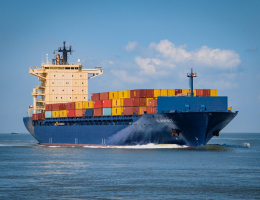Hurricanes, Covid have put damper on holidays: Product shortages hitting retailers
When the country shut down over Covid back in March 2019, people hoarded toilet paper and other essential products, causing shortages across the country. Now retail stores – grocery stores in particular – are feeling the pinch again, this time for food items, especially in the canned good and frozen food sections, and even with turkeys.
Last summer’s hurricanes put a damper on the shipping world, shutting down whole areas – such as the Gulf – that have caused back logs for everything from gasoline to pickles.
Part of the blame also goes to a shortage of labor, reports Tasteofhome.com. “There simply aren’t enough people to make the goods, move the goods and sell the goods,” says Jim Dudlicek of the National Grocers Association.
Thanksgiving is coming up and it looks like there might be a shortage of turkeys. According to TasteOfHome, because families held smaller gatherings because of the pandemic, they bought smaller turkeys, leaving a glut of larger turkeys. Turkey farms actually shut down in spots during the pandemic and grain prices also went up. The site recommends people look for their turkeys early and even suggests they buy their turkeys in pieces (wings, drumsticks) instead of the whole thing.
What else could put a damper in your Thanksgiving meal is a shortage of canned goods, i.e. green beans, cranberry sauce, tomato paste, soda. The problem is two-fold: people stocked up on canned goods during the pandemic and manufacturers have been dealing with an aluminum shortage.
Other items being hit with shortages include chicken (the fast food chains have a chicken sandwich war going on and they are scarfing up chicken), pet food (prices are higher and there is a shortage due to higher prices of soy, corn and meat), Lunchables (because a lot of schools are back in session and parents rely on these for their kids), bottled water (some retailers are limiting how much you can buy at a time) and liquor. For some reason, Ohio, Pennsylvania and Virginia are especially short. According to NPR, import prices have skyrocketed, glass bottles are hard to source and liquor simply takes longer to make, so suppliers are still struggling to catch up… and probably will for a while.
Supply has also been affected by the fact that more people are staying in and cooking, mainly due to the pandemic. That’s increased demand.
The experts, such as Amitra Thakkar of TasteOfHome, advise people not to panic buy, though. She says only buy what you truly need and be mindful of other shoppers.
It’s not just food
Says the New York Times: “The world is short of everything – get used to it.”
Continues the NYT: “Pandemic-related product shortages — from computer chips to construction materials — were supposed to be resolved by now. Instead, the world has gained a lesson in the ripple effects of disruption... Delays, product shortages and rising costs continue to bedevil businesses large and small. And consumers are confronted with an experience once rare in modern times: no stock available, and no idea when it will come in.”
Car manufacturers, such as Toyota, are cutting back production because of a shortage of parts. Construction companies are facing shortages of materials as well.
So, warns the experts, consumers should be ready to face higher prices and shortages for the holidays, and, they mentioned, it’s beyond food. AARP issued a report that due to rough weather in the northwest and parts of the Midwest, there will be a shortage of Christmas trees.
Jami Warner, executive director of the American Christmas Tree Association, told AARP that despite supply issues, shoppers who start looking early for a tree will not encounter problems. “The majority of U.S. consumers will be able to find a Christmas tree for their homes this year. But to find the one that perfectly fits their tradition, vision and budget, they will need to find and buy it early,” Warner says.
The higher prices and lack of the usual availability of computer chips will make purchasing new laptops, desktops and other electronics a more expensive proposition this Christmas.
When will things get back to normal?
“There is a genuine uncertainty here,” Adam S. Posen, a former member of the Bank of England’s monetary policy committee and now the president of the Peterson Institute for International Economics in Washington, D.C., told the New York Times. Normalcy might be “another year or two” away, he added.







.jpg)

.jpg)
.jpg)